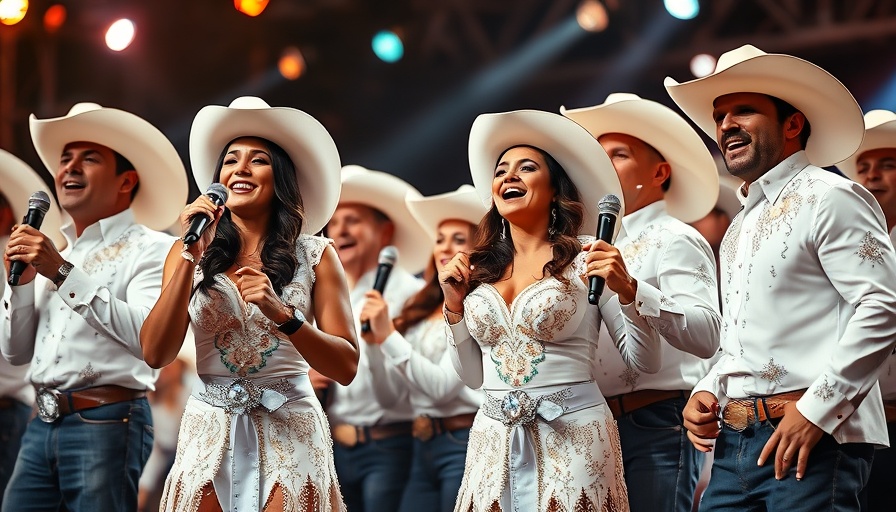
Understanding the Legal Battle in Hip-Hop Culture
The ongoing feud between Kendrick Lamar and Drake has escalated beyond the lyrical sparring typical of hip-hop and into the federal courtroom. As Drake sues Universal Music Group, claiming that Lamar's track “Not Like Us” promotes slanderous accusations against him, the case raises fascinating questions about the art form itself and how it is interpreted by the public and the courts.
The Roots of the Feud: A Cultural Context
To fully appreciate the implications of this lawsuit, one must understand the context of hip-hop rivalries that have historically pushed artists to new creative heights. From Biggie and Tupac's notorious clash to the East Coast-West Coast divide, rap has a rich history of confrontational lyricism as a means of artistic expression. This current conflict arose as both artists released a slew of tracks criticizing each other, fueling the promotional momentum surrounding their music.
What’s at Stake: Legal and Social Implications
Drake's lawsuit signifies not just a defense of his reputation, but also outlines broader concerns about artistic liberties in music. The court must decide whether these lyrics constitute slander or protected artistic expression. According to the suit, Drake argues that insinuations regarding his personal life and his character are not merely artistic flourishes but damaging accusations that could lead to real harm. The outcome of this case may set a precedent for how similar future disputes are handled in the industry.
Hyperbole vs. Harm: A Rapper's Dilemma
The crux of the legal contention hinges on whether the average listener interprets Lamar’s lyrics as exaggerated hyperbole, a hallmark of the rap genre, or as harmful slander. The nuances of rap lyricism come into play here; many listeners readily accept that rappers like Lamar often use provocative imagery to convey deeper themes. Judge Jeannette Vargas highlighted the complexity of defining the 'ordinary listener.' If jurors relate more with the art of rap rather than the literal meanings of the lyrics, this could significantly sway the ruling in favor of Universal Music Group.
Public Perception: Social Media Reactions and Trending News
This case is actively trending on social media and news outlets, illustrating a cultural fascination with the clash between two of contemporary music's biggest figures. Fans are split; some support Drake's pushback against perceived defamation, while others argue that this legal action infringes on free speech and artistic expression. The discourse around this feud highlights the generational divide in music appreciation—where younger audiences may resonate more with the authenticity and rawness of freestyle exchanges, older fans might see a need for boundaries given the implications of some lyrics.
The Future of Hip-Hop: A Turning Point?
As the lawsuit unfolds, it could herald a transformative moment in hip-hop. Will artists feel restricted in their expressions if they recognize that their words hold legal ramifications? Alternatively, will they continue embracing bold, provocative language as long as it remains within the bounds of creativity? The outcome of this case could also influence how music is marketed and branded, creating new guidelines that artists must navigate.
Concluding Thoughts: A Call to Open Dialogue in Hip-Hop
The Drake-Lamar feud is more than celebrity gossip; it raises profound questions about the intertwining of art, culture, legality, and public perception. As fans, it's essential to engage in this dialogue, examining how much power an artist's words hold over their public persona and the societal implications of those narratives. While the legal system deliberates, listeners should also reflect critically on the music they consume and the messages it conveys.
To stay updated on this evolving story, follow trending news on social media and engage in conversations about the implications this lawsuit may have on future music.
 Add Row
Add Row  Add
Add 




Write A Comment